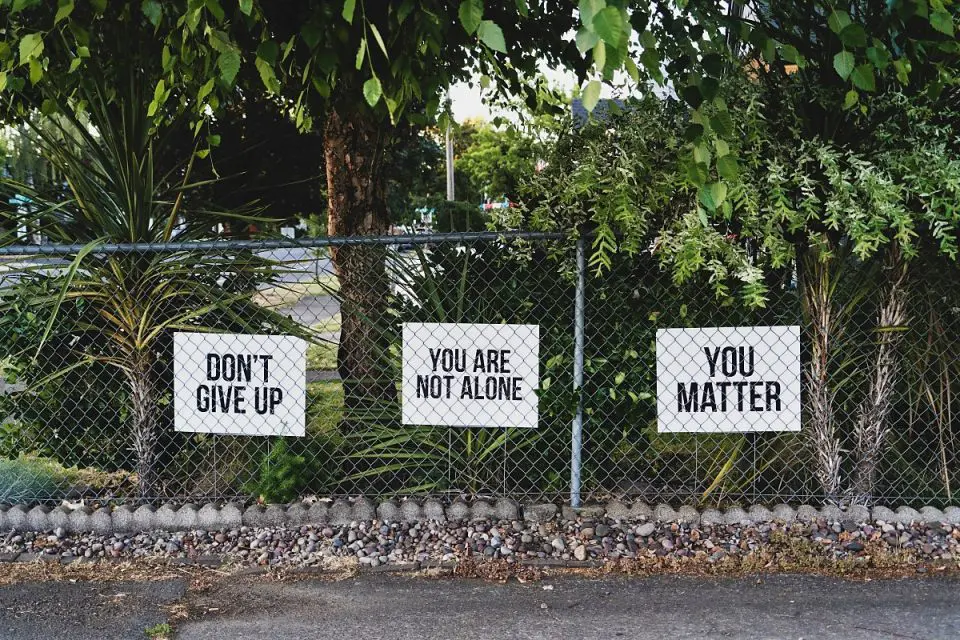By Alang Bendahara
According to the 2019 National Health and Morbidity Survey (NHMS 2019), a total of 2.3 per cent of Malaysia’s adult population suffer from depression. Since early 2020, the Covid-19 pandemic and the movement control orders that came with it have caused emotional distress to many, following sudden changes in the work environment, the loss of jobs and incomes, and fears for safety.
In conjunction with World Mental Health Day 2021 which falls on Oct 10, Selangor Journal spoke with two experts in the field of psychology on the need to raise more awareness on the topic.
Despite periodic efforts made by the authorities and various parties to raise awareness on mental health issues in Malaysia, society still finds it hard to accept people with mental illness.
Universiti Sains Malaysia (USM) Forensic Science Programme Psychologist & Criminologist Assoc Prof Dr Geshina Ayu Mat Saat said there are so many myths associated with people with mental health conditions.
“Perceptions based on these myths make it harder for people with mental health conditions to be included in the community and some neighbourhoods tend to stigmatise those with such conditions, whereas in actual fact they can contribute positively to society,” she said.
Dr Geshina added that the portrayal of people with mental health problems on social media and the entertainment industry have made such perceptions and attitudes worse.
“There have been movements and agenda to villainize people with mental health conditions (these are actually crimes) and they should be stopped. Many mental health sufferers can do no harm and are better citizens compared to their more able counterparts,” she said.
She said more needs to be done beyond raising awareness and the reporting of limited statistics.
“It starts with a better understanding of what mental health issues are and are not. This is followed by demystifying myths and replacing them with truths and realities; as well as having in place sufficient health practitioners and affordable services for those in need.”
Meanwhile Universiti Kebangsaan Malaysia (UKM) Faculty of Social Sciences and Humanities, Psychology and Human Well Being Research Centre Senior Lecturer Dr Suzana Mohd Hoesni agrees that more efforts to educate society on mental health awareness
should be conducted.
“It should be encouraged and there is a need to educate society that it is okay to get help and it is a normal process, as anyone is susceptible to having mental health issues,” she said.
Neither deadly nor permanent
Dr Geshina said mental distress is not necessarily chronic, as it can be temporary, mild, episodic, or long-term; and not all spheres of life are equally affected.
Thus more focus should be given to the provision of timely services, evidence-based effective treatments, victim support networking and groups, social integration and acceptance into the workforce.
“Every person experiencing mental health challenges is different. With adequate treatment, people with mental health concerns can have fulfilling lives and contribute towards nation-building,” she said.
Mobilising support
While laudable, current efforts are not enough to mobilise support for mental health issues in the country.
“There are not enough experts, stemming from not enough people taking an interest to pursue clinical psychology or psychiatry as a career. One needs perseverance and commitment of at least eight years to be qualified.
“The World Health Organisation predicts sharp increases in the number of people in need of mental health services within the next decade. Unfortunately, the ratio between expert and patient continues to widen,” said Dr Geshina.
However, Dr Geshina said many science students are also deterred from committing to the field when they find out that a psychologist’s income does not correlate to the sheer volume of work and dedication needed.
Dr Suzana added that there is a need to increase the awareness of the complexities and ailments of the human brain to all, starting from preschoolers to senior citizens.
“Mental illness may be inherited or develop over time due to stresses in life (or trauma), and being able to identify symptoms early helps the person in need,” said Dr Geshina.
Getting treated
The WHO set this year’s theme as ‘Mental Health Care for All: Let’s Make it A Reality’. Its message is clear: getting treatment is a difficult process for many patients.
Dr Geshina said it is not a matter of not having access to psychologists but a matter of not having enough affordable access.
“Appointments need to be made months in advance because of the lack of professionals.
Bear in mind each session is between 30 to 50 minutes.
“How many clients can a professional reasonably see in a day? Never mind the essential administrative part of each session. If one government hospital has only two mental health professionals, you can calculate the queue,” she said.
Parting advice
According to Dr Suzana, the key to having good mental health lies in oneself.
“Mental health is an important matter and should be given attention by all individuals from all walks of life and ages.
“It starts from psychological management like stress management. Effective stress management can curb mental problems from worsening to the level of excessive anxiety that makes a person prone to depression. One of the best ways to care for your mental health is to self care.
Dr Geshina advised people to never be afraid of mental health issues in order to help those suffering from it.
“Don’t be afraid of it, don’t be judgmental, replace myths with truths. Get educated about the diverse range of concerns related to mental health. Get self-empowered to monitor yourself and those under your care so you can seek help as needed.”
This article first appeared in the Selangor Journal monthly October edition, published on October 4, 2021.





